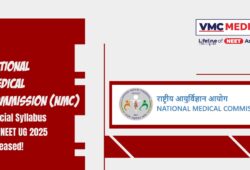The Influence of Changing Question Patterns on NEET Exam Preparation
 Posted On
Posted On
174 total views, 1 views today
In the dynamic landscape of medical entrance examinations, NEET stands as a beacon of change, continuously evolving to better reflect the demands of the medical profession. With each iteration, NEET not only assesses the knowledge of aspiring doctors but also shapes their approach to learning. In this exploration, we delve into the transformative journey of NEET’s question patterns and dissect their profound impact on preparation strategies.
- Embracing Conceptual Mastery over Rote Memorization: In yesteryears, NEET thrived on the memorization of facts and formulas, rewarding those adept at regurgitating information. However, the winds of change have ushered in an era that venerates conceptual understanding above all else. Today, NEET scrutinizes candidates not merely on their ability to recall but on their capacity to apply knowledge with discernment. This paradigm shift necessitates a departure from rote learning towards cultivating a profound grasp of fundamental concepts. Aspirants are now encouraged to embark on a journey of discovery, where comprehension reigns supreme over mere memorization.
- Embracing Interdisciplinary Synthesis: NEET’s evolution extends beyond individual subjects, embracing the synergy between disciplines. No longer confined within the silos of biology, chemistry, and physics, NEET now demands a synthesis of knowledge across domains. This fusion challenges aspirants to transcend traditional boundaries, fostering a holistic understanding of the interconnectedness between subjects. To thrive in this new landscape, students must adopt an integrative approach, weaving threads of knowledge from diverse fields into a cohesive tapestry of understanding.
- Embracing the Practical Application of Knowledge: Gone are the days of passive learning, where theoretical knowledge sufficed to conquer NEET. The contemporary iteration of the exam embraces the practical application of knowledge, presenting aspirants with real-world scenarios that demand ingenuity and critical thinking. Through a myriad of application-based questions, NEET evaluates not only what candidates know but how adeptly they can apply their knowledge to solve complex problems. In response, aspirants must cultivate a repertoire of practical skills, honing their ability to navigate the intricacies of real-world challenges.
- Embracing Higher-Order Cognitive Skills: NEET’s evolution extends beyond the realms of knowledge, delving into the domain of higher-order cognitive skills. With an emphasis on analytical prowess and evaluative acumen, the exam challenges aspirants to ascend the cognitive hierarchy. Through tasks that demand data analysis, graph interpretation, and inference drawing, NEET scrutinizes the depth of a candidate’s intellectual prowess. To excel in this cognitive arena, aspirants must hone their analytical faculties, fostering a mindset that thrives on complexity and nuance.
Closing Thoughts
In the crucible of NEET’s evolution, preparation transcends the mere acquisition of knowledge; it becomes a journey of self-discovery and transformation. To navigate this landscape successfully, aspirants must embrace a multifaceted approach that prioritizes conceptual mastery, interdisciplinary synthesis, practical application, and cognitive agility. Armed with these pillars of preparation, aspiring doctors can embark on their NEET journey with confidence, ready to conquer the challenges that lie ahead.




